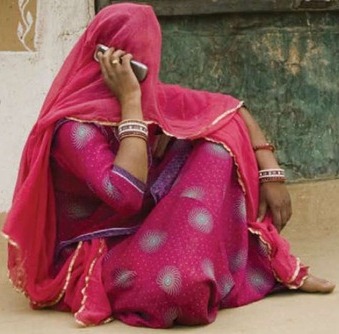Disconnect in India's rural telecom fund; $4.65 bn idling
 New Delhi, July 28 : A fund created 10 years ago to help link each of India's 638,596 villages with telecom and broadband connectivity with mandatory contributions by private service providers seems to be idling, with a whopping $4.65 billion in balance.
New Delhi, July 28 : A fund created 10 years ago to help link each of India's 638,596 villages with telecom and broadband connectivity with mandatory contributions by private service providers seems to be idling, with a whopping $4.65 billion in balance.
Thus far, around $8.4 billion (Rs. 50,682.95 crore) has been collected towards what is called Universal Service Obligation Fund (USOF) since 2002-03 when parliament approved the scheme. Official data shows $4.65 billion (Rs. 27,949.91 crore) remains unused.
While experts and stakeholers question the rationale behind continuing with this fund, which imposes a financial burden on telecom operators, those entrusted with it say it is just a matter of time before it starts showing and fetching results.
"This fund is equivalent to 0.25 percent of India's gross domestic product and remains unallocated and is highly inefficient," said Gabriel Solomon, the public policy head of Groupe Speciale Mobile Association (GSMA), the global association for mobile companies.
"If the fund were left with the industry, it would be spent on infrastructure investment that has a positive economic impact," Solomon told IANS in an e-mail from London, based on the findings of a recent report on India's fund.
In fact, the report prepared by the association, which is a powerful lobby and public policy advocacy, also suggests that the Indian fund has had a net negative impact on the country's telecom and information and communications technology sectors.
"One of the main reasons why such funds remain unused in many countries is that a competitive industry like telecom moves at a pace which these funds cannot keep up with," said Solomon.
"In a matter of a few years, the mobile industry in India has built huge infrastructure, connecting hundreds of millions of people. Why even consider a USOF (Universal Service Obligation Fund) now? If the private sector is appropriately incentivised it will always outperform the public sector."
Not that N. Ravi Shanker, the administrator of the fund under the Department of Telecom and chairman and managing director of Bharat Broadband Nigam Ltd (BBNL) disagrees. "But this is just half the story," he told IANS.
According to him, of the Rs. 27,949.91 crore left unused, some Rs. 20,000 crore will be deployed for the national optic fibre network project and another Rs. 3,046 crore for installing 2,199 mobile towers in the nine Left-wing extremism-affected states.
"The criticism is valid for the time being. But we are evolving. As the projects start rolling out, we will need more funds," he said, adding the projects include one to link each of India's 250,000 village councils with high-speed data cables.
Mahesh Uppal, director of Com First, a leading consultancy, said it was true that money collected from operators was largely unspent and only a small fraction of it has been deployed for rural telephony so far.
"But the rules for the fund include its use for broadband too and the government will use most of it for the national optic fibre network. It is not that the money is idle. It is in the consolidated fund and is being used for other government activities," he said.
"Yes, the fund has not worked perfectly. There are some structural problems. It is very inflexible. We need to change the rules so that we can use it more creatively - that is by other entities, not just holders of telecom licences," Uppal said.